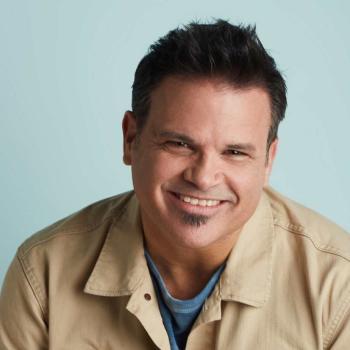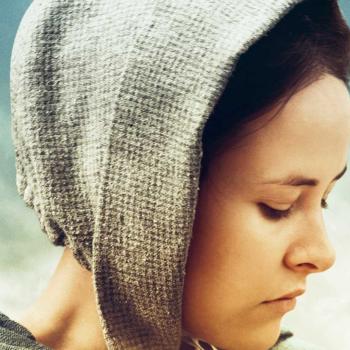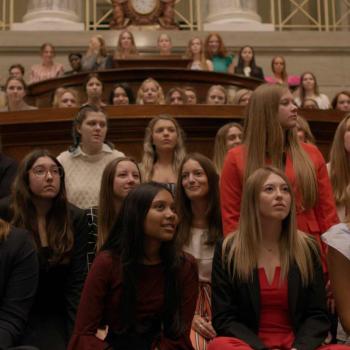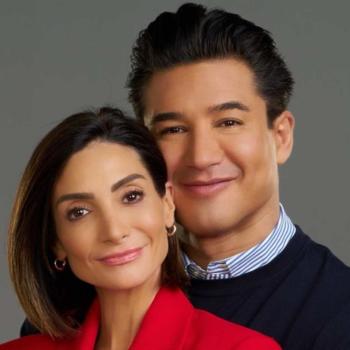In the new comedy Instant Family starring Mark Wahlberg, Rose Byrne, Octavia Spencer, Tig Notaro, and Isabela Moner, a young couple encounters the world of foster care-adoption in hopes of starting a new family. Director Sean Anders (Daddy’s Home, Horrible Bosses 2), who wrote the screenplay with John Morris, drew upon his and his wife’s own experiences of adopting children. In this interview, he explains the real-world inspiration, whether or not the film is a “message movie” and the comedic timing of frequent collaborator Wahlberg.
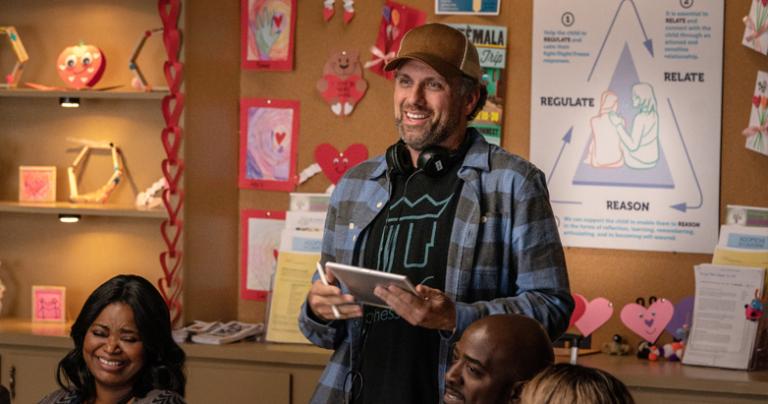
I thought all the casting was just spot on. Everybody plays their role so perfectly. I really want a spin-off movie with Octavia and Tig, too.
Yeah, I kind of want to make a buddy cop movie with the two of them.
I know this film had to come from somewhere personal, because it just feels like it.
Well, my wife and I adopted three siblings out of foster care about seven years ago, and that obviously was the kind of defining decision of my lifetime. One thing that surprised me was that as we moved through the process, I didn’t know anything about it, how it worked and would tell friends and family about it, and it was all news to them as well. So I really wanted to tell that story because there’ve been a lot of adoptions in movies, but usually it’s kind of an afterthought. There’s rarely is there a social worker or a support group or any of the real things that you deal with. So I really wanted to tell a real kind of insider story about that.
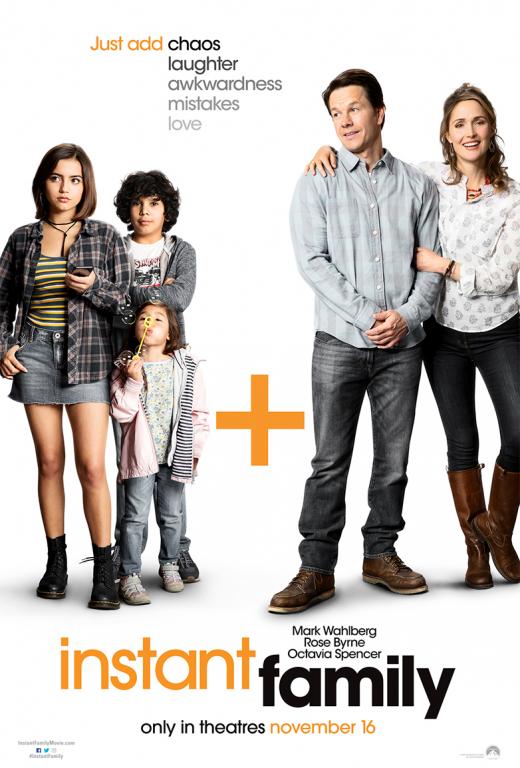
What parts of the movie are kind of lifted from your own story? Are there characters, are there people that you encountered that were similar to the characters in the movie?
Yeah, many. There’s the family, which is not based on any real family members of ours, but are definitely inspired by different people. The social workers. We had social workers that were real odd couple in the way that Tig and Optavia are. We had so many of those experiences. In fact, the way that the movie begins with Pete (Wahlberg) making a joke and just saying, ‘I feel like I’m going to be an old dad. Why don’t we just adopt a five year-old and that will be like we got started five years ago?’ That’s how my family started. I just made that joke one day and my wife kind of ran with the idea that led us to an orientation and eventually adopting three kids.
The one piece that is different in our life, a very big part of the movie is that my wife and I did go to an adoption fair like they do in the movie and the teenagers were all kind of off by themselves like they are. My wife and I were really did not want to adopt the teenager; that was too scary for us and we didn’t feel prepared for that. We wound up meeting a teen girl just like they do in the film. We were very taken with and she had a younger brother and sister and we wound up matching with them. We were really terrified about that and kind of get ourselves prepared for that idea. Then a couple weeks later, our social worker called and said that it wasn’t gonna work out. It turned out that these kids had been in foster care for four years, and the teen girl really was holding out hope that her birth mom was still coming for her. So she chose not to accept the placement. That was where the Lizzie (Moner) character began, inspired by the adoption fair. We have no idea what really happened with her. So it started there and I really wanted to have a teenager involved in the story because there’s such a need for understanding there. What I did is I met with a lot of other families that adopted teenagers and I met with a lot of young women that had been adopted as teenagers. And their stories kind of coalesced into the Lizzie story.
Are you involved in adoption causes? Or was this something that just kind of centered around the movie?
It started around the movie because first I had my own real experience. Then we just kind of became a normal regular family. Later when the idea to make the movie came up, I started working with a social worker named Allison who was our consultant on the movie and started talking to her quite a bit. I was learning so many things that I didn’t know even being having been a part of the system. Meeting with all of these families and all of these girls who had been adopted, I just learned more and more and along the way. I was also meeting people who have different nonprofits or organizations. Now with the movie being finished, since we’ve started screening it for so many different places, I became much more ingrained in the whole community of it than I ever was before. And that’s actually been really wonderful.
I noticed also in the end credits where you have, you know, a website for people to get more information. Even though it’s an entertaining movie, it seems like it’s a pretty direct message to try to help solve this problem.
Well, you know, the idea behind it was to make a legitimately funny, entertaining movie comedy that people can just go to the multiplex on a Friday night and have a good time. But I really think any movie you go see, you know, whether it’s a Marvel movie or a, you know, or a Pixar movie or whatever, you’re going to take something home with you. Unless its a bad movie, then you’re going to maybe just take some anger with you (laughs).
Or lose a little money, too . . .
You’re going to leave some things behind as well (laughs). Yeah. What I hope that people take away from this movie is a little bit more of an understanding of how these families are made and how this and how this process works. More important than anything, I hope that people come away with a different attitude about how some of these kids are because of the fear about kids in the system of foster care in general, it brings to mind thoughts of fear and trepidation and pity and that kind of thing. I would love it if people come see the movie and it takes them on a more complete journey into the laughter and the love and the joy, that when they walk away from it, they just have a more positive attitude towards these kids are. At the end of the day, these kids are just kids, they need love. They need parents and they have love to give.
Did you have like an adjustment period when you, when you adopted?
We had a very difficult adjustment period. Yes. Really everyone does, because you know, you, you have to, you have to see it you’re inviting these people into your home who you don’t know and they don’t know you and you’re supposed to be their parents and they’re supposed to be your kids and you’re supposed to behave like this little family. And nobody really loves each other yet, so it creates all of this chaos and frustration and awkwardness. A lot of it creates a lot of really genuinely funny situation, which we sort of played off of the movie. But it also really is a difficult transition for. You have to just kind of weather your way through that. What is nice or at least in my experience—which was really wonderful—is that you get this opportunity that a lot of people don’t get, to fall in love with your kids. And when that happens, it’s a very special thing.
This is the latest in several projects you’ve done with Mark Wahlberg. You have a pretty good relationship with him. How has that developed over the years?
It’s been great. I mean, Mark is such a no-nonsense guy. He’s always hustling. He’s always working. He and I both like to work through our days quickly and keep the energy up on set. We both like to work with kids. I think we have a lot in common in that way. I know with Mark, whatever I throw at him, he’s going to be able to handle and do something great, whether it’s some kind of drama, something really heavy, or something really funny or something kind of screwy. Whatever it is, he’s got ears for all of it. Having Mark executing your dialogue, it’s sort of like driving a Ferrari. You just know that he could handle whatever you throw at him.
Is there anything else you’d like to mention about the film?
I think the main thing that I really want to get across to people is what I was saying before that this movie is not medicine, it’s not a public service announcement. It’s a comedy and it’s a funny movie and I think it’s be a good time at the movies, but you might walk away with it with a little bit better understanding that you had when you walked in.
Instant Family, directed by Sean Anders, releases Nov. 16 from Paramount Pictures.
See Also: REVIEW: ‘Instant Family’ is a Hilarious, Endearing, Feel-Good Comedy



